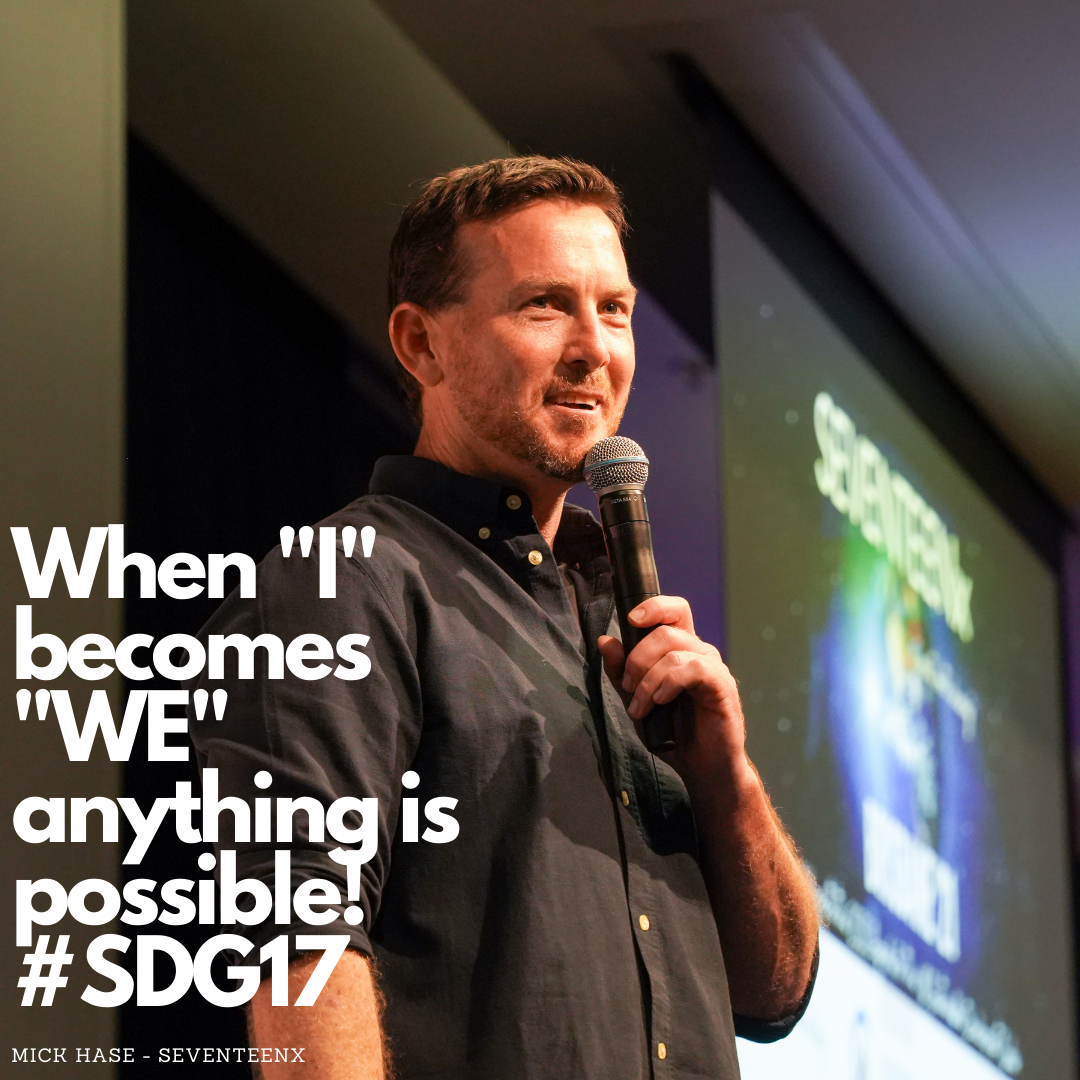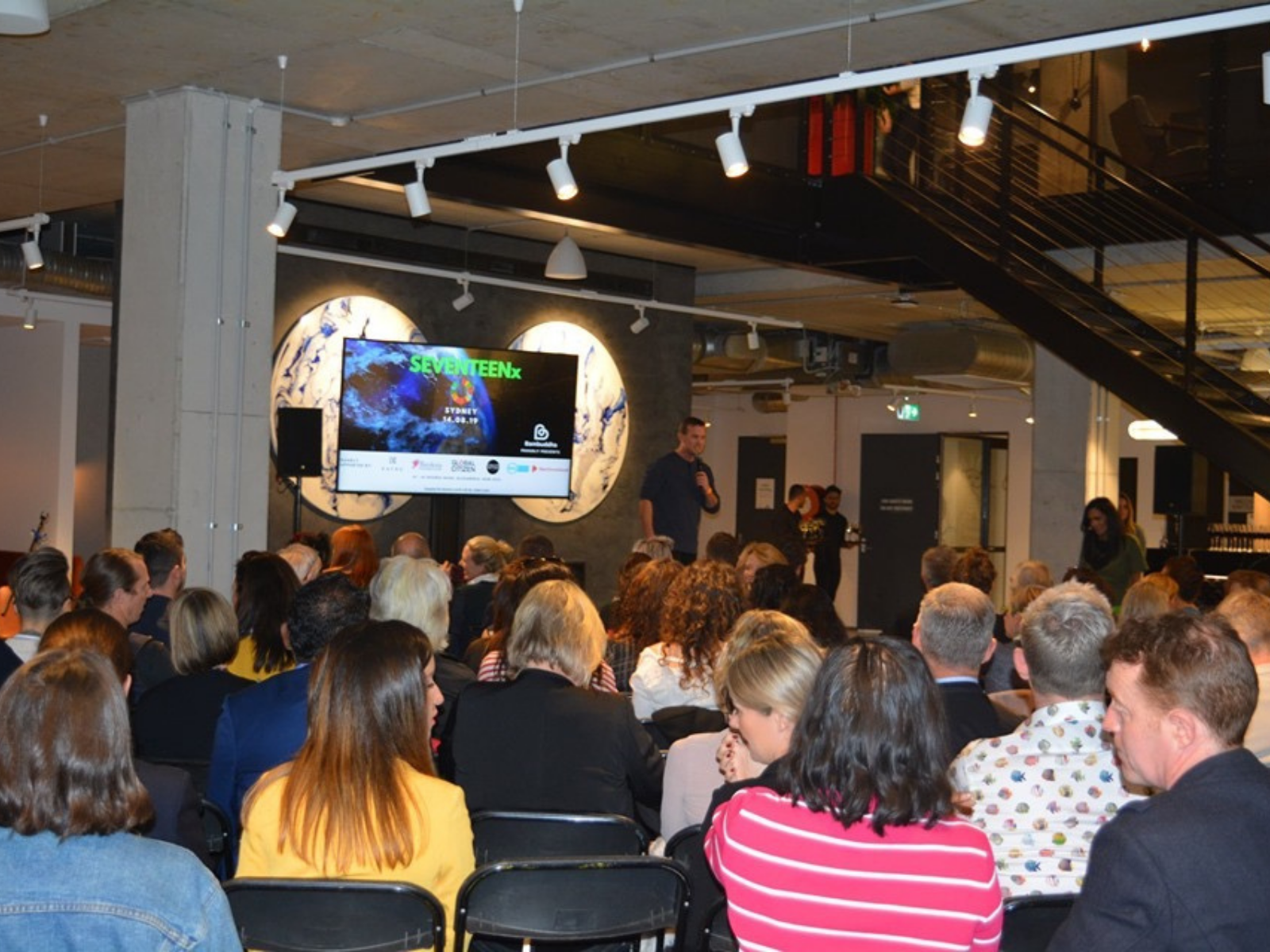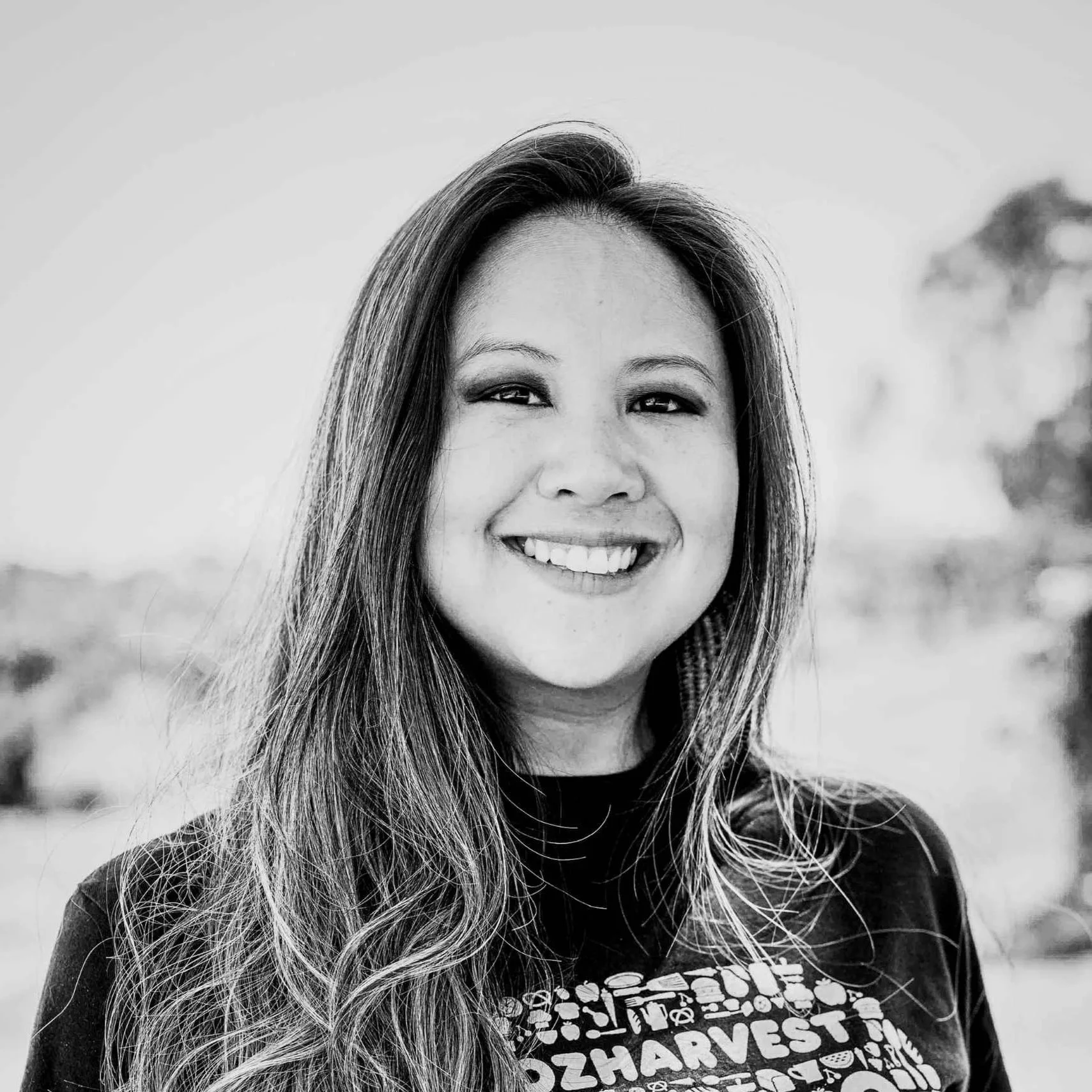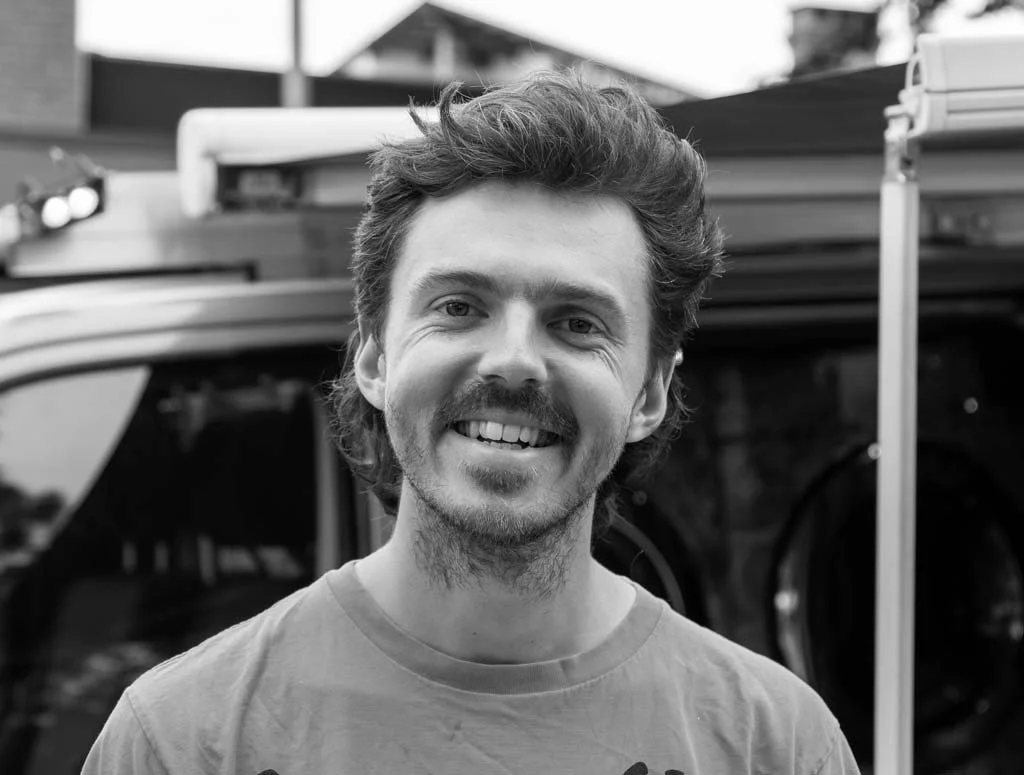Mick Hase On The United Nations Sustainable Development Goals And Redefining Business
In between being a Dad, a Hubby and a surfer, Mick’s work seeks to connect with values aligned brands and people to make a purposeful impact in the world.
His primary goal is to establish connections and clearer pathways to success through leadership, communication, purpose, and aligning with the UN Sustainable Development Goals. Mick currently work’s within the following projects:
1) Founder of SEVENTEENx - Speaking events that tour Australian cities engaging the business community with the UN Sustainable Development Goals. With a podcast called SEVENTEENx - SDG convos with Mick alongside.
2) DICE Consulting - Management consulting with operators and their teams in leadership, culture and strategy. This work builds pillars to Educate, Empower and Enable leaders to create amazing teams, culture and purpose driven business.
3) LIVIN Well workshop facilitator - Mental Health stigma reduction and suicide prevention workshops for mental health charity LIVIN.org.
Mick is also a Public speaker and Consultant on all things culture, connection, purpose, leadership, people, management and leading to create business models that inspiring people to do good.
Mick discusses the cultural shift towards purpose led businesses and how the United Nations SDG's provide a profound framework for social change to occur globally.
Highlights from the interview (listen to the podcast for full details)
[Indio Myles] - To start off, could you please share a bit about your background and what led to your interest and work in global change?
[Mick Hase] - A few years ago, I found out how good it makes me feel to work in an impact or purpose-driven business scenario. The more that I get asked that question, [the more I think] that there's definitely a selfish reason in amongst it all, where it just feels good! The truth of it is that I've worked in that consulting space with SMEs for the last 10 years, and towards the end of that decade (around 2018-19) I was asking more questions to myself, and clients about how can we transition our business models to create more sustainable change in the world? At the time, I was being wrapped around the SDGs and exploring these global goals and how they can relate to business. Luckily, they work pretty well with how we can build our teams and inspire people to create great outcomes and how success can be actually wrapped up in solutions that are bigger than just us. It feels bloody good, that's how I got there!
Tell us more about the United Nations Sustainable Development Goals and how businesses might engage and align with them effectively?
For anyone that doesn't know, the UN Sustainable Development Goals started in 2015 off the back of the Millennium Goals. Basically, the UN General Assembly global leaders got together and said, “the worlds in a bad place effectively, and we're in trouble in a variety of areas.” In response, they came out with these very colourful, engaging seventeen global goals that we need to take action and create solutions for by 2030. It was a 15-year plan, it's now being tagged as the 'worlds to do list', which I think is pretty cool. But really, it's looking across all things, people planet and society in general. For business, climate change is a very hot topic right now, equality is becoming more and more front of mind, and businesses are finally transitioning away from the CSR checklist and ‘tick the box’ attitude to more thinking that this is an actual opportunity. This not only to do great things in the world, but to actually create even bigger and better success for us as a business model.
It's now making more sense to do business good; it's good for business to do good business.
These global goals are obviously a great framework for us to look at where to start and do good as a business unit, whether that is a corporate business model right down to SME sole entrepreneurs? Often the question becomes where we start and what's actually good for us, and I think with seventeen goals you can find one that you can align with at least to get started. If we all find one each across the seventeen, by the time everybody does it, there's will be some really amazing actions happening for each of those goals.
Where do you see people fall short in aligning with values and sustainable goals in the workplace?
You could go back maybe the last hundred years and see what a traditional business model has been set up to do. It's all been about singular focus, myopic success. How do I create more value for myself as the owner and founder or for my shareholders, because it's all driven by the bottom line. How much money can we create? It's a very insular focus, and anyone that's struggling with this transition is still living in that age as far as how they run and conduct their business. With the consulting side of my work, I guess that's more my day job at the moment. It gives me the freedom and flexibility to work on things like SEVENTEENx. With the people that I work with, often we want to scale back and take a look at how we can engage, enable and really bring the best out of our teams? I'm a huge fan of service-based leadership, and culture eats strategy for breakfast every day of the week, so how do we actually create amazing culture and leadership platforms for our teams to go and succeed and be amazing at what they do? 20-30 years ago, we were taught to follow the leader and do whatever our boss told us to, and they were the ones that we had to follow.
Now, I think there's been a real transition from trying to follow what our myopic views are as an individual in a business, to how can we as a team work together to create outcomes that are beneficial for both of us, our business and the people around us all and the planet.
We almost then have a three-tiered focus of creating culture, success and analysing what that looks like? Then we can bring impact, purpose and things like the SDGs into play that allow us to look at success metrics inside the business but also outside the business. When we start looking at how we inspire people to create success that's bigger than themselves, the funny part is that the success for them tends to follow pretty closely. When we really start to wade through what does that external purpose and impact look like for us as either a team or a business, then we generally feel good about ourselves, we start to enjoy our role, jobs, teams and business that we work with. Then, when we enjoy what we do and we feel good about ourselves, that 'success' shows up, whatever that looks like. That's how we see it, and I think any corporations or businesses that are struggling with that right now are perhaps just still living and operating in that older mentality of what success looks like. Now that doesn't mean that they're meaning to do that, they just may be still trying to work out, "how do I transition?"
With some of the larger organisations in the corporate setting, you can't expect them to change overnight. It is a process, but it's about one step at a time, 1% at a time.
Over time, then we can create some amazing solutions and outcomes because humans are amazingly resilient and we're very good at innovating if we work together. That's how I see it at the moment with both sides of those impact coins, sustainable business versus the old way of doing things.
How do you create dynamic and safe spaces to host conversations on crucial topics and global issues?
I like where you talk about ‘dynamic and safe spaces to host conversations on crucial topics’, the language you used is really important. One of the key things that I try to avoid is labels and dealing in matter-of-fact solutions. What I mean by that is with SEVENTEENx, the first thing that I set out to do in 2019 was really to figure out how to use this as a platform for change? This was insular and looking at how do I learn more about how I can create more purpose in the world and learn from people rather than trying to come up with solutions on my own? I set up this event as a way to meet really interesting people doing amazing things, and you tend to start to open the doors to those conversations. One of the key things that you learn when you start stepping into this space of social enterprise, change makers or profit for purpose businesses is that some are doing it on a huge scale, and some are doing it on a small scale, but they're all working in the same direction. One of the things with SEVENTEENx is we try not to control the conversation. For the speakers that come and speak at our events, there's only one rule and that rule is that they can't sell from stage.
We're not an event series where everyone's trying to sell their stuff, it's more about how can you tell us your story and hopefully inspire action in the audience?
There's really no control, so I do get a lot of speakers asking, "what do you want me to talk about,” and, “how do you want me to frame my talk?" It's a seventeen-minute keynote, so you don't have a lot of time, but my answer to those questions is ‘you do you’. If you want to talk about why you do what you do and fill us in with some of the facts and science along with the research in your space, happy days! If you want to tell us your story as to why you chose to do this, whether you had a specific 'aha' moment or whatnot, then let us know. The main thing is how do we just choose not to control the conversation, because what that allows us to do is host a very organic environment for these conversations to come about. Some people jump on stage and share a whole bunch of science, and it opens us up to the reality of what's happening. For others it is very much a storytelling about what led them on this path [and is] very much talking about their results and the impact they're creating in the world. By the time we let all of those conversations come out, we're ticking all the boxes, so we have a bit of science, we've got facts, we've got a bit of inspirational storytelling, and then we've also got impact measurement from some of these guys. Certainly, how we create a safe space with these events is by trying not to control it, and again, what I was alluding to earlier is trying not to put labels on anything. I know that there are some environments and communities where there's a definition around what a social enterprise has to do or give away to become classified as a social enterprise.
My goal is that I just want to reinvent the word 'business', and business just needs to be more about how we have a holistic approach to our business success that involves things like the people, planet and society as stakeholders of the business?
Whether you call yourself a charity, a social enterprise, a 1%, environmental organisation or a for profit, I don't really mind, just as long as we're all making change in the world. Some guys can do it on a huge level, but we can't all be Bill Gates and give away billions of dollars. We can do community-based things in our own backyard that are just as important. That's how we try to frame the SEVENTEENx events, to really just allow it to be fairly free flowing and organic in the way that it creates conversation and hopefully gets people inspired to go and look at their own business once they've been to our events. Just to touch in on that, where you say everyone needs to get involved, a huge part is that we can get involved. One of the things I'm concerned about in SEVENTEENx is figuring out how to avoid isolating potential audience members that are not involved in the SDGs at the moment or are not taking action beyond their profits and losses. That's okay, we know that this is how business has been running. What we invite everyone to do is to join the conversation, even if you're just dipping your toe in the water, to find out a bit of facts and look at what's 1% I can do differently to at least get started in that conversation and journey. It could be something as simple as making sure that I'm having conversations around equality in the workplace with my team, that's very simple, very easy to get going, and you don't have to change too much of your structure. It's just about open communication and a little bit of education where required. Things like that are very easy to do, but anyone that is holding these community driven social agendas in terms of conversations, events or spaces, one of the biggest things that I have noticed, and I saw it at your Impact Boom event a couple of weeks ago in Brisbane, is that it's an open-door policy. Once you open that door, everyone's very welcoming and it's very much about how we can do things together rather than what are you and I doing and are we stepping on each other's toes and trying to do the same thing, because then I can't share my secrets with you, as opposed to thinking, "hey, how do we actually do that together?"
Where do you see opportunities for impact led enterprises or individuals globally to ensure prosperity for future generations?
I think there's two parts to that question. Firstly, the opportunities for the currently, soon to be or wanting to become impact led organisations is that clearly the consumer and the market is headed this way. I believe in 10 years’ time, if you're not engaged in some sort of socially responsible equitable solutions with your business, you simply won't exist. With millennials now (I read a report by Paul Polman that he wrote about Unilever, a huge global player in this space), half the global population is now under 30. They're highly in tune, they want sustainable solutions, equality and purpose beyond profit.
They want businesses to be responsible, so the market and the customer is not going to let you get away with it. If you want to be in business in the next 10 years, you're simply not going to have a choice but to get on this ride.
Then on the other side, the prosperity of future generations is certainly about how do we reinvent the wheel? I think we can reinvent business and the words definition. I think the definition of business in the dictionary needs to be updated and defined more in terms of how we have that holistic approach with stakeholders in our model that include the planet, the people around us and society in general that can be more sustainable, and how does the business impact the wider community and the world outside of its own elements. That will allow us to educate and enable future entrepreneurs and business leaders as they come through, even at the school level. We need to reshape business studies 101 in the Australian school system and all around the world. We've got to redefine this whole thing, and the more that our leaders and government come to the party (as Australia is obviously dragging the chain here), the easier it will be. What can we do to redefine those definitions and recreate how we perceive success in the future? Then with the combination of that theoretical educational framework and the resetting of definitions along with that millennial attitude, then the future of business being sustainable is extremely bright for the next one hundred years and beyond.
What organisations do you believe are creating a strong social impact?
I'm a huge fan of shopping local, so I always have liked to look within first for inspiration. There are a couple of big examples from around the world that I could mention, but locally Yasmin at The World's Biggest Garage Sale is amazing. I always love to give Yas a shout out because what she has created in the last four years or so from literally a garage based social enterprise to a warehouse sized social enterprise is all off the back of hard work, grit and determination. I like to talk about the head of a corporate, heart of a charity mentality, so anyone that's around the place should go and check out The World's Biggest Garage Sale, particularly if you're trying to work out how to engage with things like the SDG's or build a purpose driven framework. Yas is doing some really cool stuff with her team, products and business line there. I'm a huge fan of Tom Dawkins and what he does with StartSomeGood and the Good Hustle. StartSomeGood, based in Sydney, are a social enterprise based crowdfunding platform.
He's helping bring through that future generation of social enterprise, and then they run the Good Hustle program, which is an accelerator type program where they help people actually understand and define their business model before they start raising funds.
Tom is also backed with a huge amount of both practical and theoretical experience in this space from living and breathing it. I was listening to one of his podcasts, he's been in the activism and advocacy space since he was 15, so he's been in the game for a long time and has got so much to share. Our impact partners at SEVENTEENx, B1G1 are fantastic for anyone looking at how they can actually deliver immediate impacts through the SDGs. B1G1 do it in a really fun, engaging way that is both good for me, my business, team, community, clients and customers. They're a walk-up start as far as the solution, so I’m a huge fan of what those guys do and there are so many more great things to happen with those guys. The last one I would suggest is I've recently discovered Danone Company, a dairy company based out of Paris I believe. They have an absolutely amazing social ESG platform and an agenda that I just started diving into in the last couple of days, and they've got this terrific reporting system on the SDG's that they're actually working towards. The promises that they've made, the long-term commitments that they have in place and how they're actually going about it are being recorded, and they score themselves against it. Obviously, it's at a corporate level, but we can learn a lot about it, and I think on face value, I never knew that Danone were really going down this path, but the depth and their ability to create results in this space plus how they're measuring themselves and articulating that is phenomenal.
What books or resources would you recommend to our audience?
In terms of resources, definitely go to globalgoals.org, there have all the SDG information you need and its open source. If you want to know more about the SDG's, that's where to go. Now secondly, I read No Rules Rules earlier this year by Reed Hastings founder of Netflix. That was probably one of the better books I've read in the last while, particularly around how do we engage great culture and build amazing teams. That was a really great book to read. We've all been in the SEVENTEENx circle seeing high appraises of Cult Status by Tim Duggan. I think he just won an award for the book, it's a really interesting workshop book for building great brands. I'd highly recommend those two books and just go and check out all the SDG information at globalgoals.org.
Initiatives, resources and people mentioned on the podcast
Recommended books
No Rules Rules: Netflix and the Culture of Reinvention by Reed Hastings and Erin Meyer
Cult Status: How To Build A Business People Adore by Tim Dugan








